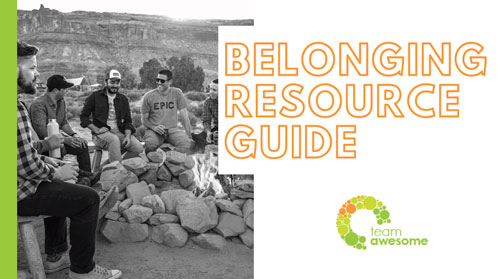I have noticed something in recent years about where we place our attention that I want to examine here. Are you willing to stay with me as we sort this out? Please stay, this applies to you.
With the amount of information flying at our faces every day, it is no wonder that as humans we tune into some data and not into others. In fact, it is a necessary brain function that we discern (either consciously or unconsciously) what to focus on and what to let pass by us. We couldn’t possibly hold all of that information in our heads, or all of the consequential emotion in our hearts. We would explode (here is an article the outlines the staggering amount of information humans take in every day, in case you are wondering).
I want you to visualize a moment. The moment when you see a news story or someone you know recounts an experience to you, and you feel affected. Something happens in your body, and your cells react in some way. What is it? How would you describe that feeling?
Now I want you to consider another moment. Imagine you are scrolling through Facebook, and someone shares in their status that they have been struggling with an illness. You think to yourself, that is too bad, and then keep scrolling.
Why is it that we take in some information that affects society as a whole and feel as if it applies to us, and some things we feel do not?
In the book The Hidden Brain by Shankar Vedantam, he tells a fascinating story about the amount of outrage, money and attention that went towards rescuing a single dog that was left behind on an abandoned ship in the Pacific (you can read more about that story here). In contrast, the world collectively did very little eight years earlier during the Rwandan genocide where hundreds of thousands of humans were dying. The point is that our brains simply turn off processing issues at mass proportions because it feels overwhelmed. When we can affect one person, in one situation, we feel more capable to make a difference and we take action.
I have seen flashes of outrage about a sensational news story (e.g. rich people scamming their way into USC) but little outrage about other systemic ways some students do or do not have advantages (e.g. students of color with access to college application support). Both are worthy of our attention, but one gets more. Our brain believes one does not apply to us because we can only do so much, or don’t know where to start, feel overwhelmed about getting involved or whatever the reason we shut it off.
What if we looked at things through the lens of this question: “How does this apply to me?”
Let’s examine the #Metoo movement as an example. As we began to have more conversations in our society about what is or is not appropriate behavior towards women, I noticed a trend in conversations I was having with men in my life. We can all agree that the egregious behavior in the news is inappropriate. But I often saw men turning off the rest of the conversation because it didn’t feel applicable to them, as they would never do what Harvey Weinstein did, for example. I asked questions of friends: Have you ever whistled or shouted out of a car window at a woman? Have you ever talked with your guy friends in high school or exaggerated on whether a girl “puts out”? Even in my thirties, what seemed tolerated (albeit still gross) in my youth no longer feels acceptable. In this lens, then yes, the conversation of how women are treated applies to you. If you are a woman, know a woman, have a daughter/sister/mother, work with women, or live in society with women or men, then this applies to you.
When I am responsible to recruit diverse slates of candidates for a job but do not examine the inequitable resources for students of color to access college, this applies to me. When a man wants to take paternity leave but feels fear of retaliation or career regression, this applies to me. When my fellow humans are not seen, loved, or understood, this applies to me. We are all in this together, and inextricably connected.
I struggle with this personally because I am empathic to other people’s struggles, and it is overwhelming when I feel all of the feels from other people’s struggles, watching the news, or reading current events. I feel as if my survival depends on shutting some information out. There are times when I have done nothing because I felt overwhelmed or didn’t know what to do (even this very second).
How do we move forward and maintain our sanity while taking the world view that yes, this applies to us? Here are a few ideas:
- We can ask ourselves these questions:
- How does this apply to me? Our community? To society?
- What do I choose to do in this case?
- What can I learn from this moment?
- We can temper outward outrage, and save energy for inward reflection and personal action
- We can identify one potentially polarizing or large-scale topic that we have previously set aside and look for how it may apply to our lives or those around us
I am not asking for a complete overhaul of how our brains work, or what we think is important in our lives. I believe that we are all doing our best to live our lives according to what we most value. What I do want us to consider is when the big stuff comes up, that we contemplate how it does affect us rather than take the automatic response that it doesn’t apply to us. If we all increase our discernment and consciousness by even ten percent, that could alter the course of the world and how we interact as humans.
Start by identifying one topic to examine with a different lens than you may have used in the past. Do you see anything differently?
About the author:
Katie Rasoul is the Chief Awesome Officer for Team Awesome, a leadership coaching and culture consulting firm. She is a TEDx speaker alumna, author of the best-selling book, Hidden Brilliance: A High-Achieving Introvert’s Guide to Self-Discovery, Leadership and Playing Big, and co-host of The Life and Leadership Podcast.
Find out more by visiting www.teamawesomecoaching.com or join the Team Awesome Community for awesomeness coming straight to your inbox. Follow Team Awesome on Instagram, Facebook and Twitter.



Recent Comments